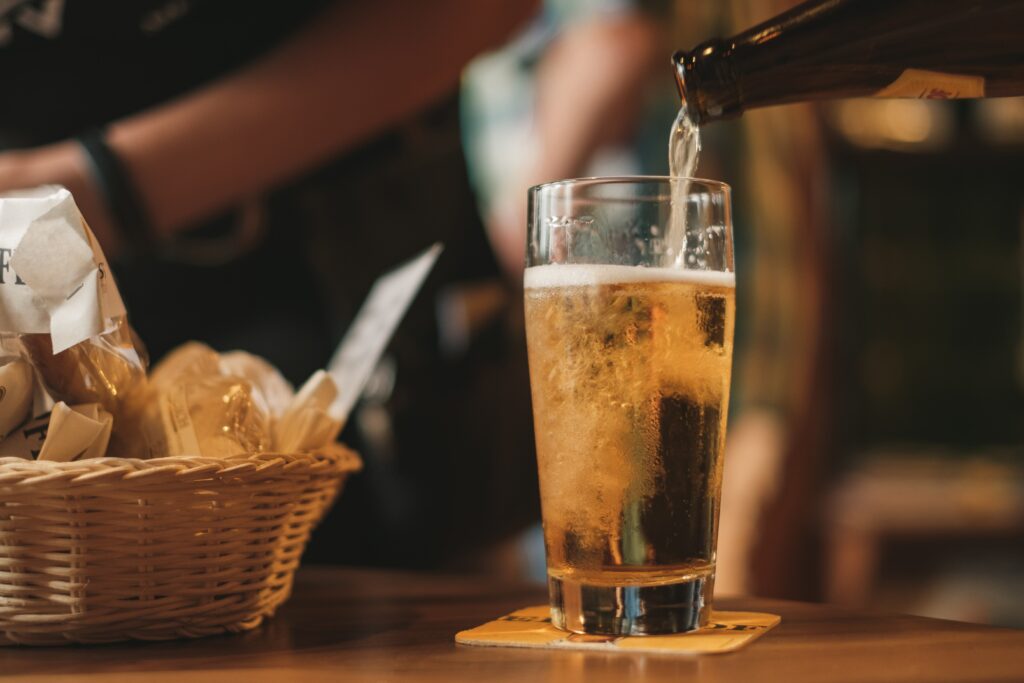
Home » Addictions We Treat » Alcohol Addiction » How Long Does Alcohol Stay in Your System
How Long Does Alcohol Stay in Your System?
- By Joe Gilmore
- Reviewed by Jenni Busse
- 04/02/2024

How long alcohol stays in your system can vary, but it can be detected for up to 72 hours depending on the test used.
If you find yourself searching for answers about how long does alcohol stays in your system, this could indicate a potential problem. This realization can be a significant turning point, motivating you to embark on the path to recovery. At Gratitude Lodge, we acknowledge that alcoholism is a complex condition, and our team is dedicated to providing the support and guidance you need, from detoxification to inpatient treatment.
How Long Does Alcohol Stay in Your System For
Alcohol can stay in your system for 6 to 72 hours, depending on the body system and the detection test used.
The length of time alcohol can be detected in the body depends on various factors, including:
- Amount consumed
- Type of test used
- Individual biological factors
Upon ingestion, alcohol enters the digestive system and is absorbed mainly in the stomach and small intestine. About 20% of alcohol is absorbed in the stomach, while the remaining 80% is absorbed in the small intestine and enters the bloodstream. On average, the liver can process 1oz of liquor or one standard drink per hour. If more alcohol is consumed than the liver can metabolize within this timeframe, the excess alcohol accumulates in the blood and other tissues until it can be processed.
The rate of alcohol metabolism can vary from person to person based on factors such as:
- Age
- Weight
- Gender
- Liver health
- Genetic factors

Urine Test
Blood Test
Breathalyzer Test
Hair Follicle Test
Do You Have an Alcohol Problem?
The diagnosis of alcohol use disorder is based on specific criteria outlined in DSM5-TR (Diagnostic and Statistical Manual of Mental Disorders). These criteria help professionals assess whether someone is experiencing significant impairment or distress due to their alcohol consumption. The DSM-5 identifies 11 criteria for an alcohol use disorder, and if someone meets two or more of these criteria within a one-year period, they may be diagnosed with alcohol use disorder. These are the diagnostic criteria:
- Alcohol is consumed in larger amounts or for longer than intended.
- There is a persistent desire to cut down or control alcohol use, often with unsuccessful efforts.
- Significant time is dedicated to obtaining, using, or recovering from the effects of alcohol.
- Strong cravings or urges to consume alcohol are experienced.
- Recurrent alcohol use leads to the neglect of important responsibilities at work, school, or home.
- Social or interpersonal problems arise or worsen due to alcohol use, yet the individual continues to drink.
- Reduction or abandonment of significant social, occupational, or recreational activities due to alcohol consumption.
- Alcohol is consumed in physically hazardous situations.
- Alcohol use continues despite awareness of persistent physical or psychological problems caused or worsened by drinking.
- Tolerance develops, requiring more alcohol to achieve the initial effects, or experiencing diminished effects with the same amount of alcohol.
- Withdrawal symptoms occur when alcohol use is reduced or stopped, or alcohol is used to relieve or avoid these symptoms.
Get Help for Alcohol Addiction at Gratitude Lodge
If you have developed an addiction to alcohol, we can help you fight back here at Gratitude Lodge in Southern California. We have pet-friendly treatment centers located in Long Beach and Newport Beach and Long Beach, CA dedicated to your whole-body recovery from alcoholism.
Begin the process with our supervised alcohol detox program for the safest, smoothest path to sustained recovery. After a week or so of detox, you can move directly into our 30-day inpatient program.
All treatment programs utilize the following interventions:
- MAT (medication-assisted treatment)
- Group therapy
- Family therapy
- Psychotherapy
- Individual counseling
- Holistic therapy
- Aftercare planning
When you are ready to embrace life alcohol-free, reach out to Gratitude Lodge by calling 800-994-2184.

Our Partners
WE ACCEPT MOST PPO INSURANCE
Drug and alcohol rehab should be accessible to everyone. At Gratitude Lodge,
we work with most insurance plans to cover the costs of treatment.

















